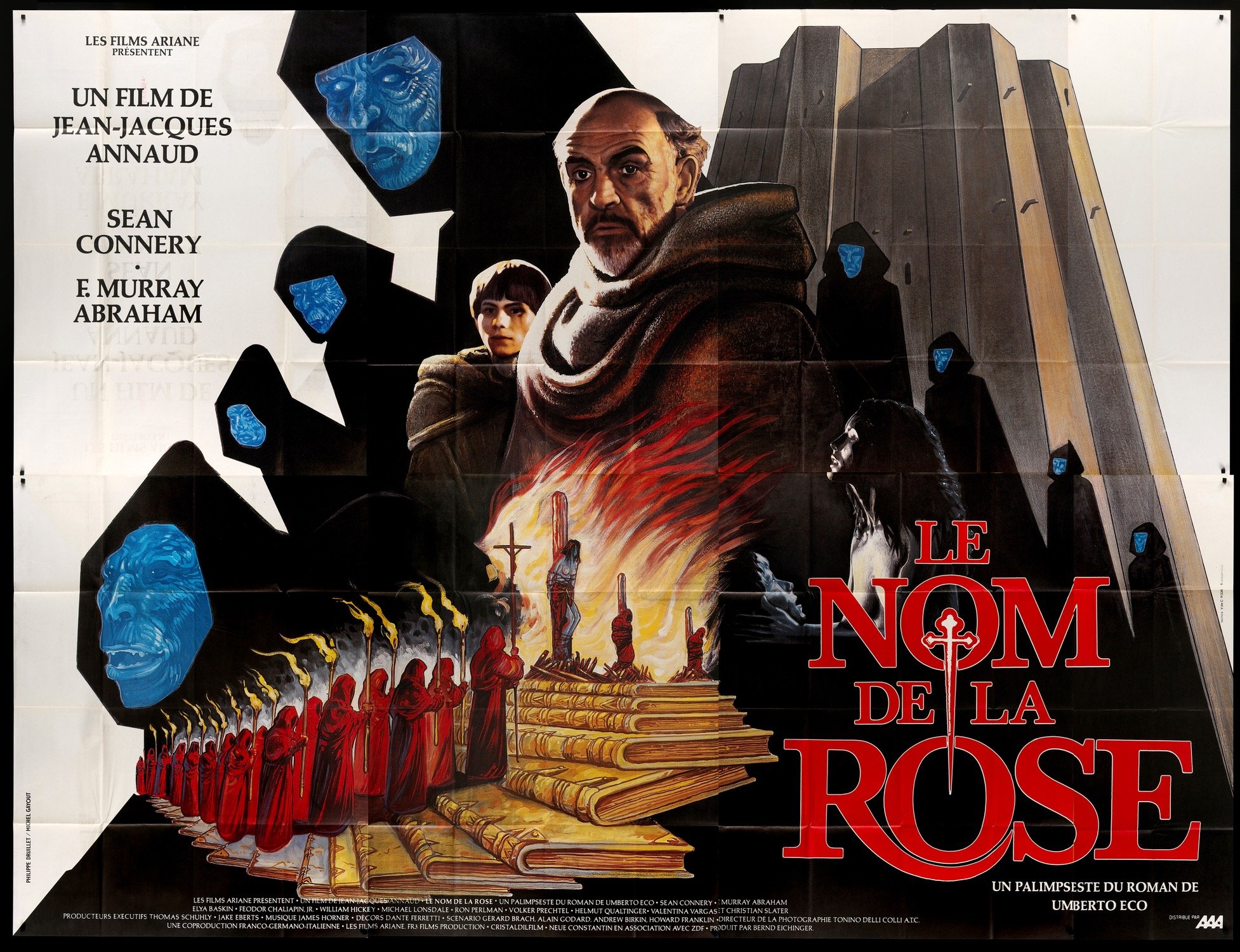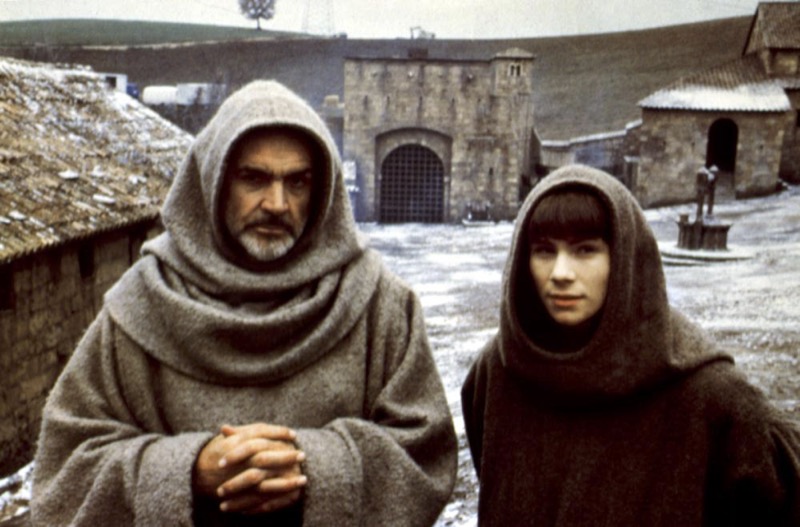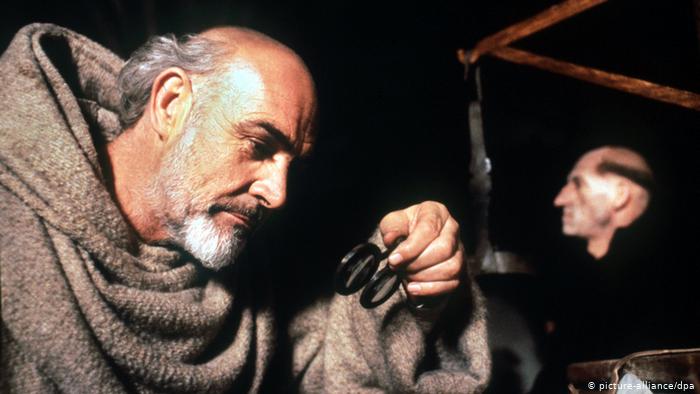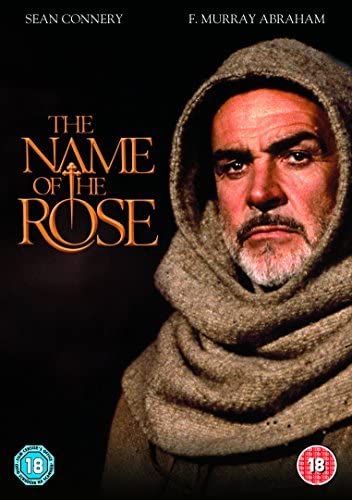Not long after Umberto Eco's book of the same
name was translated into English and became a huge bestseller, this film
was produced. The book was a surprise hit as it is a murder mystery set in
an abbey in the 14th century and the mystery is almost secondary to Eco's
musings on philosophy, religion, reason, the Church, the world that it is
set in both inside the abbey and outside where the landscape reeks of poverty
and ignorance. It is an erudite and scholarly work that is meticulously researched.
It isn't exactly beach reading. The film can't possible bring in much of
this and be entertaining but it certainly touches on all of these aspects.
The film creates a heavy oppressive atmosphere in the abbey that is grim,
gray and desolate with monks who look like escapees from the Island of Dr.
Moreau with their malformed faces, twisted bodies and rigid superstitious
minds. It is hard not to sense the evil that is in the air.

Into this abbey comes an English Franciscan monk named William of Baskerville
(Sean Connery) and his young novice Adso (Christian Slater). They are there
to attend a discussion on a specific subject between a group of Franciscans
and an emissary from the Pope. The subject is - did Christ own his clothes.
It might seem an obscure and pointless subject but it in fact was of immense
importance to the direction of the church. The Franciscans took a vow
of poverty while the Church felt that though Christ was poor, there was no
reason for the Church to be. And that philosophy has clearly been the rule
to the present day.

But first come the deaths and the murders - a monk is found dead having fallen
from a tower, another is found dead in a vat of scalding soup, another in
a bath. To some these are signs from the Book of Revelation that the apocalypse
is approaching. But not to William. He is a rationale man in an irrational
world - the Dark Ages - and that can be dangerous and heretical. For that
you can be burned at the stake. Note his last name - Baskerville - clearly
a reference from Eco to the great Sherlock Holmes. And he is very Holmesian
- noticing things and putting them together and making off hand observations.
At one point he even says Elementary. Not to Watson, but to the boy who acts
as the narrator many years later. Another tip of the hat from Eco to mysteries
is the blind monk, Jorge de Burgos, a reference to the blind mystery writer
Jorge Luis Borges.

The Pope's entourage shows up with an Inquisitor (F. Murray Abraham) who
has come to root out the devil and the Dolcinites with torture and flames.
He and William have a history - and not a good one. The Dolcinites were a
sect of radical Franciscans who not only believed in poverty for themselves
but used violence to kill others in the Church who clearly did not. The murders
have to do with a profane book of comedy written by Aristotle that has survived.
Again not exactly your typical mystery murder. This is terrific. Wonderful
sets in a real claustrophobic monastery with secret stairs, a labyrinth of
passageways and religious idols. Connery may seem a bit too modern in his
thinking and attitudes but he is wonderful. All the actors in fact are terrific.
The mystery is clever and the suspense builds as William fights the clock
and the Inquisitor to arrive at a solution. I am glad I finally caught
up with the film.




